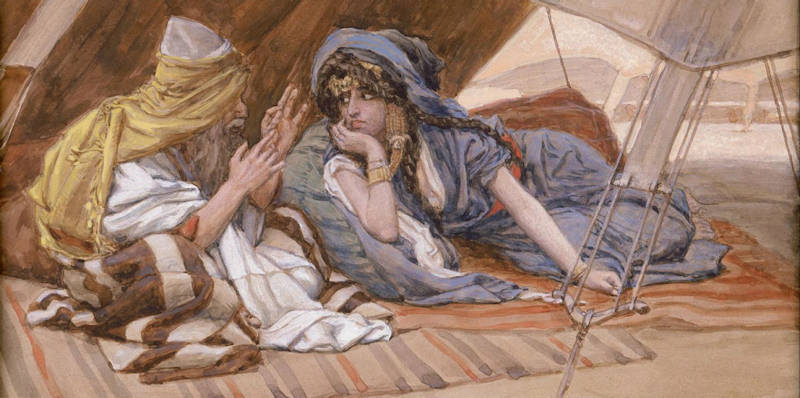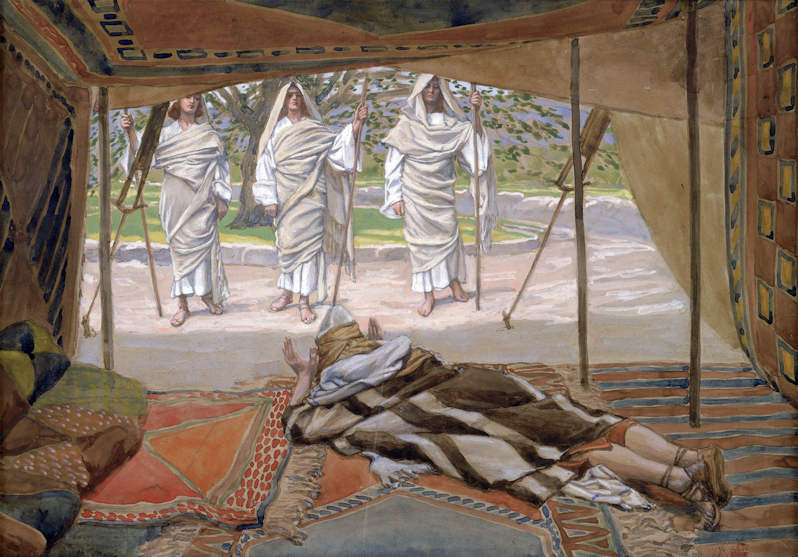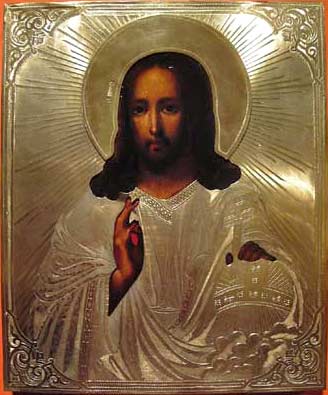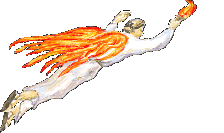- “The things which are expressed by the voice are the signs of those things
which are conceived in the mind alone; when, therefore, the soul is shone
upon by God as if at noonday, and when it is wholly and entirely filled
with that light which is appreciable only by the intellect, and by being
wholly surrounded with its brilliancy is free from all shade or darkness,
it then perceives a threefold image of one subject, one image of the living
God, and others of the other two, as if they were shadows irradiated by
it. And some such thing as this happens to those who dwell in that light
which is perceptible by the outward senses, for whether people are standing
still or in motion, there is often a double shadow falling from them.
- “Let not any one then fancy that the word shadow is applied to God with
perfect propriety. It is merely a catachrestical abuse of the name, by
way of bringing before our eyes a more vivid representation of the matter
intended to be intimated. Since this is not the actual truth, but in order
that one may when speaking keep as close to the truth as possible, the
one in the middle is the Father of the universe, who in the sacred scriptures
is called by his proper name, I am that I am; and the beings on each side
are those most ancient powers which are always close to the living God,
one of which is called his creative power, and the other his royal power.
- “And the creative power is God, for it is by this that he made and arranged
the universe; and the royal power is the Lord, for it is fitting that the
Creator should lord it over and govern the creature. Therefore the middle
person of the three, being attended by each of his powers as by body-guards,
presents to the mind, which is endowed with the faculty of sight, a vision
at one time of one being, and at another time of three; of one when the
soul being completely purified, and having surmounted not only the multitudes
of numbers, but also the number two, which is the neighbor of the unit,
hastens onward to that idea which is devoid of all mixture, free from all
combination, and by itself in need of nothing else whatever; and of three,
when, not being as yet made perfect as to the important virtues, it is
still seeking for initiation in those of less consequence, and is not able
to attain to a comprehension of the living God by its own unassisted faculties
without the aid of something else, but can only do so by judging of his
deeds, whether as creator or as governor. This then, as they say, is the
second best thing; and it no less partakes in the opinion which is dear
to and devoted to God. But the first-mentioned disposition has no such
share, but is itself the very God-loving and God-beloved opinion itself,
or rather it is truth which is older than opinion, and more valuable than any seeming.
. .
- “But that what is seen is in reality a threefold appearance of one subject
is plain, not only from the contemplation of the allegory, but also from
that of the express words in which the allegory is couched. For when the
wise man entreats those persons who are in the guise of three travellers
to come and lodge in his house, he speaks to them not as three persons,
but as one, and says, “My lord, if I have found favor with thee, do not
thou pass by thy servant.” [Genesis xviii. 3.] For the expressions, “my lord,” and “ with thee,”
and “do not thou pass by,” and others of the same kind, are all such as are naturally addressed to a single individual, but not
to many. And when those persons, having been entertained in his house, address their entertainer in an affectionate manner, it
is again one of them who promises that he by himself will be present, and will bestow on him the seed of a child of his own,
speaking in the following words: “I will return again and visit thee again, according to the time of life, and Sarah thy wife
shall have a son.” [Genesis xviii. 10.].”
- (Philo Judaeus, On Abraham, A Treatise on the Life of the Wise Man Made Perfect by
Instruction, or, on the Unwritten Law, that is to say, on Abraham, Chapters
XXIV-XXV).
|
|





